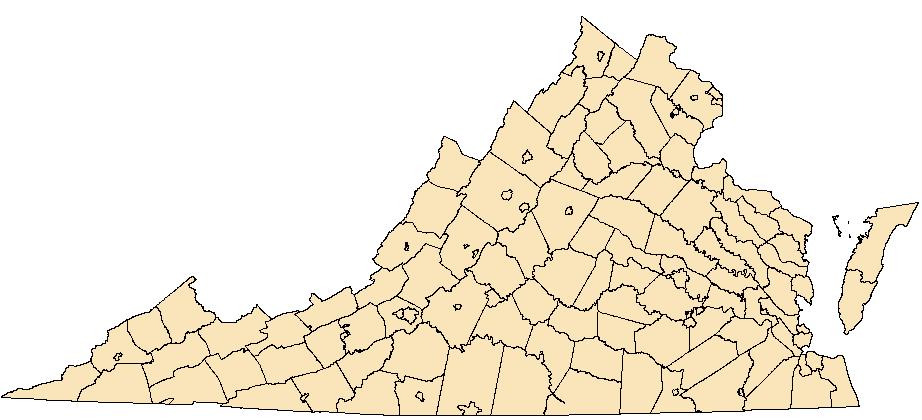Enallagma hageni (Walsh, 1863)
Hagen's Bluet
NatureServe Global Rank: G5
Virginia State Rank: S3
VA DGIF Tier: IV
Federal Legal Status: None
Virginia Legal Status: None
Description: The thorax of Hagen's Bluet is blue with black stripes. The abdomen is also blue, but ringed with black. It ranges in size from 25-34mm (1-1.3 inches). It has a similar coloration to several other bluets.
Similar species: Nearly identical in the field to Marsh Bluet (E. ebrium), the Hagen's bluet needs to be reliably identified with a hand lens or microscope by examining the male terminal appendages. See illustrations in Lam (2004) or Paulson (2011). Northern Bluet (E. annexum) also extremely similar. Though eyespots of the Northern bluet may be noticeably larger, checking appendages with a hand lens is probably necessary.
North American Range: Hagen's Bluet is found all across the northern United States and southern Canada.
VA Observations by Locality: Giles | Highland | Washington | Giles | Highland | Rockingham







Flight season and broods: Virginia flight dates for Hagen's Bluet ranges from 21 May through 12 September.
Aquatic Habitat: Hagen's Bluet prefers marshy ponds, lakes, and slow streams.
Behavior and Ecology: Female Hagen's Bluets may descend below water surface to oviposit.
Population trend and potential threats: A common species in its primary range, but rare further South.
Management practices: Boreal habitat in its Virginia location should be protected.
References: Lam, Ed. 2004. Damselflies of the Northeast. Biodiversity Books. Forest Hills, New York. 96 pp.
Paulson, Dennis. 2011. Dragonflies and Damselflies of the East. Princeton University Press. Princeton and Oxford. 538 pp.
Roble, Steven M. 1994. A preliminary checklist of the Damselflies of Virginia, with Notes on Distribution and Seasonality. Banisteria 4: 3 - 23.
Roble, Steven M. 2011. Damselflies of Virginia- Flight dates. Unpub.
Virginia Department of Conservation and Recreation, Natural Heritage Program, 600 E. Main St., 24th Floor, Richmond, VA 23219
This atlas was compiled
by the VA Natural Heritage Program with funds provided by the VA Dept. of Game and Inland Fisheries through a state wildlife grant
from U.S. Fish and Wildlife Service
Questions/Comments? Check the contacts page |
Internet Privacy Policy Statement
Last Modified: Friday, 26 February 2021, 03:21:56 PM